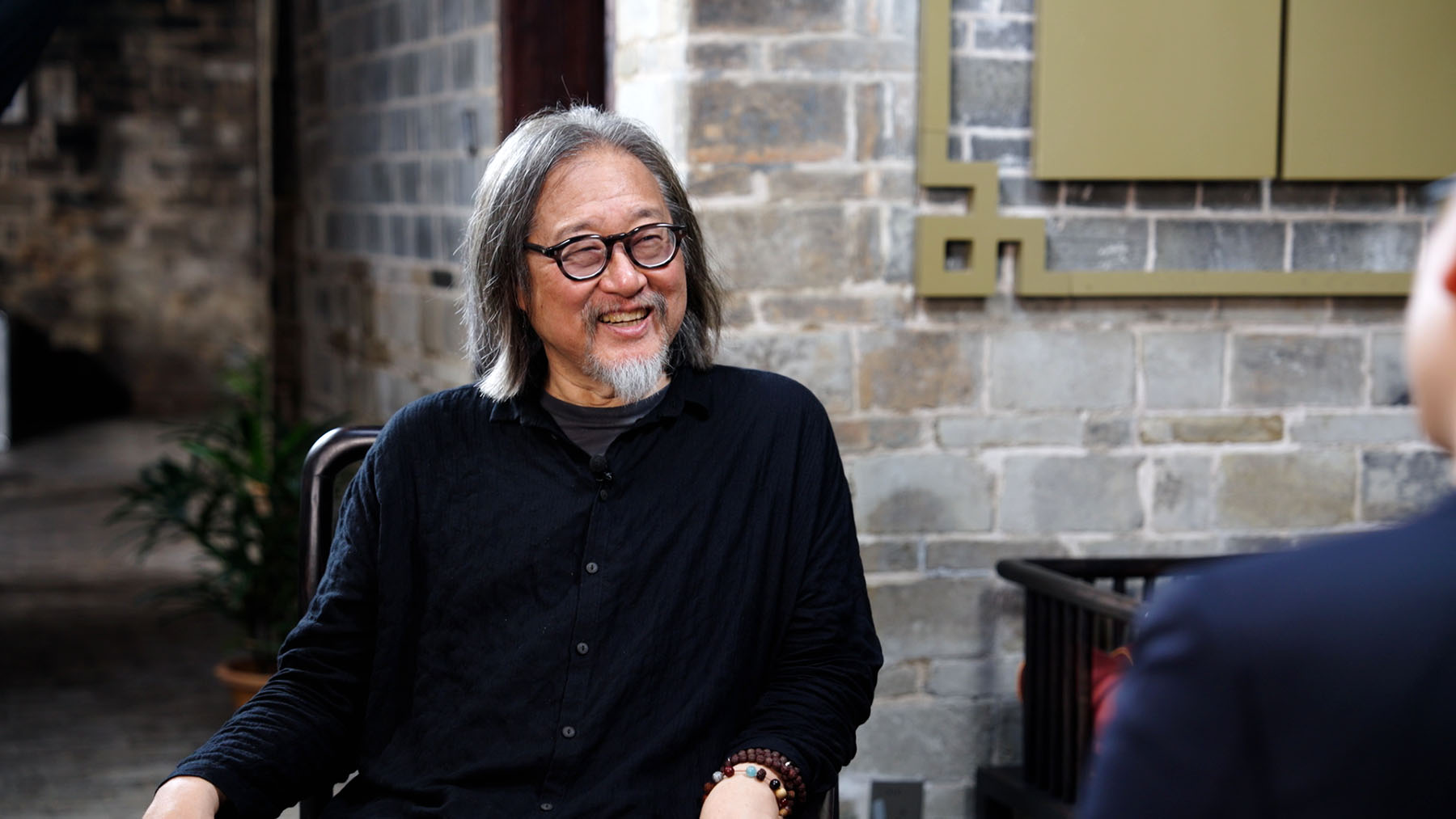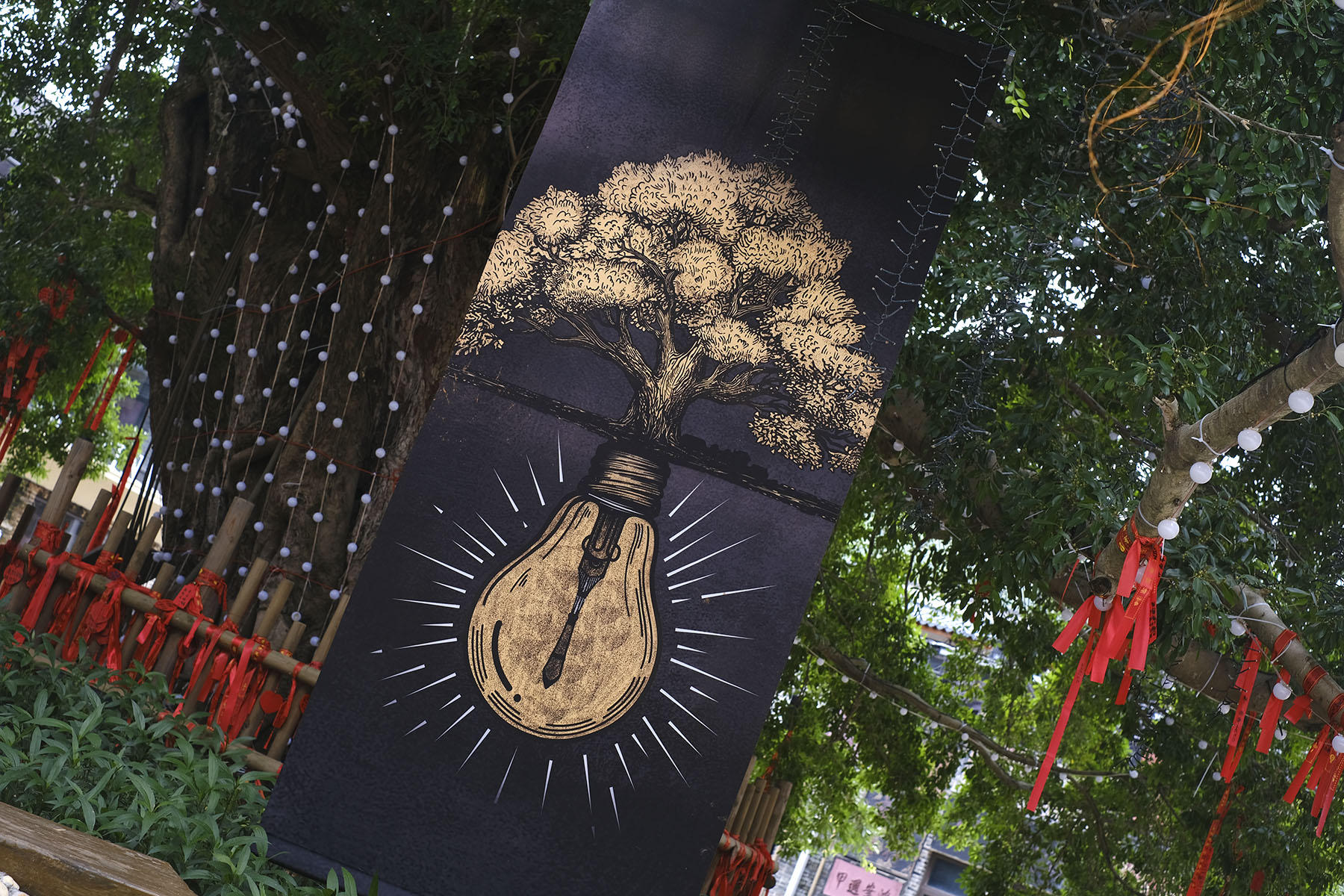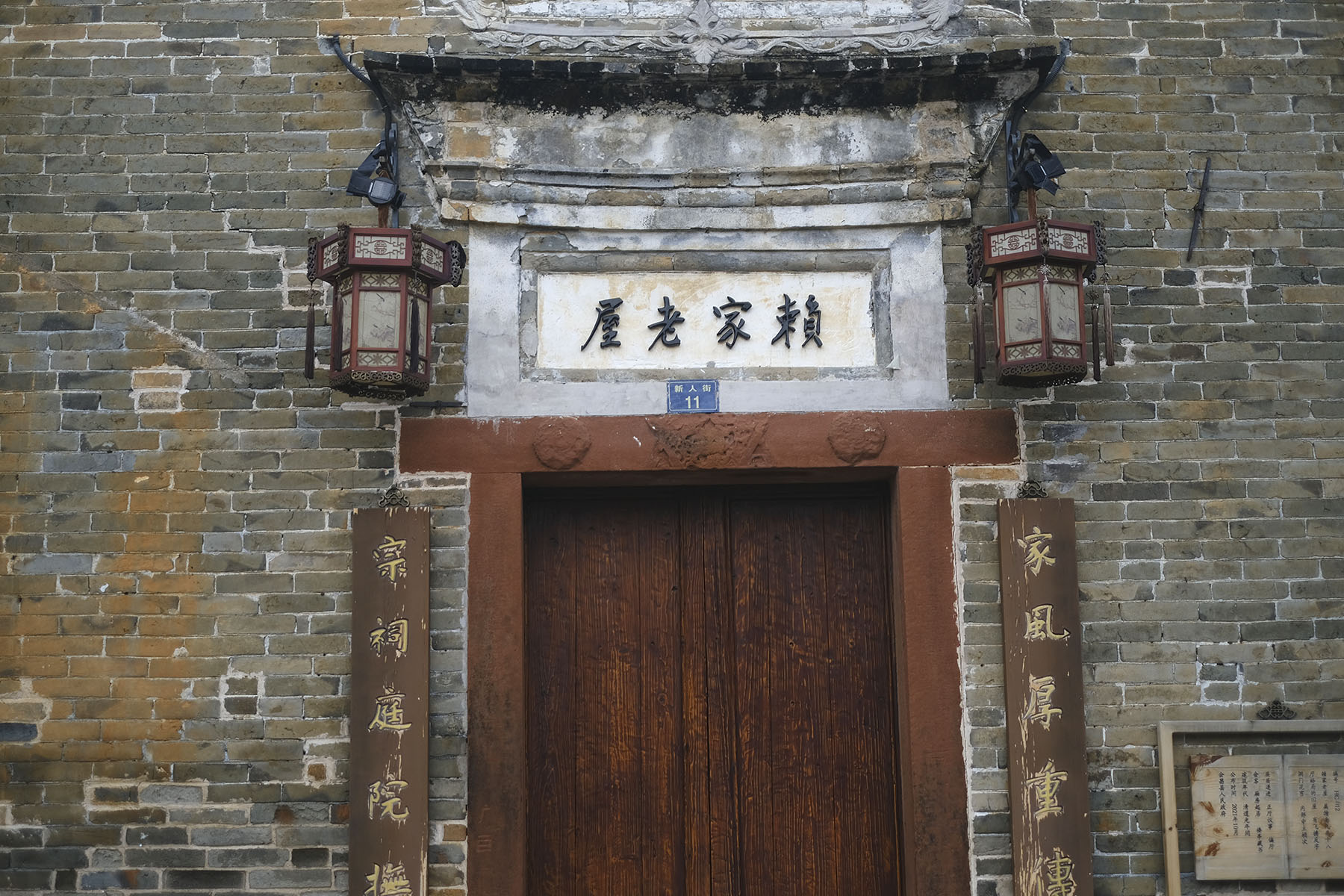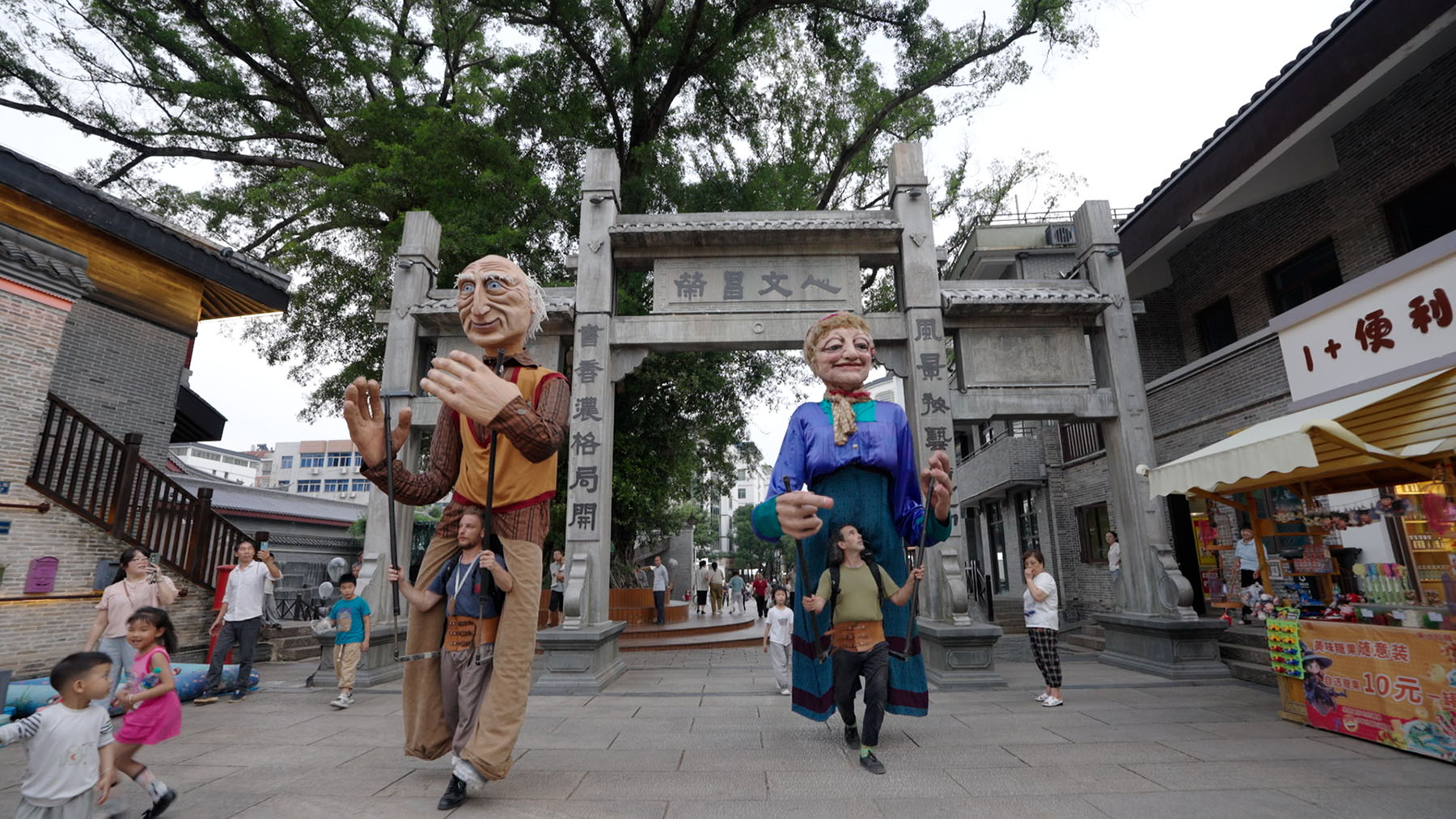Director Stan Lai transforms his ancestral place into a hub of activity, Tu Jiayi reports in Huichang, Jiangxi.

The once obscure Huichang county in East China's Jiangxi province has gradually become a well-known theater hub in China in recent years. At its helm is Stan Lai, or Lai Shengchuan, an established theater director, known for works like Secret Love in Peach Blossom Land and A Dream Like a Dream. But in Huichang, he is not just a cultural icon, but also a returning son, channeling personal memory and artistic vision into a county's aesthetic revival.
Thirty years after first setting foot in his ancestral hometown, Lai has made Huichang a central stage for a different kind of performance: history, identity, and the possibility of reimagining a place through theater. He started a project, Huichang Theatre Season, in January 2024.
In May this year, Huichang Theatre Season unfolded over 11 days from May 23 to June 2, drawing more than 200 guests from five countries and staging over 370 performances. Among them were the world premiere of Robert Wilson's Chinese-language adaptation of Hamletmachine, the debut of Lai's own Beckett in the Lai Family Mansion, and the China premiere — its only stop in the country — of Oresteia by Greek master Theodoros Terzopoulos. French troupes such as Gratte Ciel and Les Grandes Personnes, known for their spectacular appearances at international events like the Paris Olympics, also brought large-scale outdoor performances like RoZeO — Swinging in the Landscape and Nos Vieux Amants (Love Journey) to the streets and squares of Huichang.
READ MORE: Village savors its leading role
Lai started out with a simple idea.
Born in the United States in 1954, Lai, who then started his creative career in Taiwan, first returned to Huichang, the hometown of his father, in 1997, after decades of being separated from the family.
To have a deeper connection with his ancestral home, Lai hoped to help develop Huichang through culture and art.
He began returning every year with a new play, each visit sowing the seeds of a vision that would become the Huichang Theatre Village. Today, what was once a town edged by old factories is now dotted with theaters, plazas, and performance spaces — each repurposed from existing architecture, each infused with meaning.
One symbol of this transformation is the Courtyard Theatre, originally the ancestral hall of the Wu family. There, in 2024, Lai premiered Flower in the Mirror, Moon in the Water. The director says that he later came across a historical record that he found astonishing. In the 1930s, during the Chinese People's War of Resistance Against Japanese Aggression (1931-45), the area witnessed a surge in theatrical activities. His father was attending high school here where he joined a drama club. The club, of which his father was once vice-president, once performed at the Courtyard Theatre.
"Now, I spend a significant part of each year in Huichang, where I find joy and the comforting embrace of my ancestral soil. Yet, I also confront its challenges head-on — this blend of warmth and adversity ignites my resolve and purpose," Lai says.
"Because my father passed away very early, in 1969, it wasn't until 1980 that we reconnected with our family here. My uncle, my father's younger brother, was studying in the United States at the time. When we received his letter, I was deeply moved. At that moment, I realized there were so many people in this town with whom I have deep connections."

That intergenerational arc, of departure, return and rediscovery, runs through Lai's entire approach to theater-making in Huichang. "I often say theater serves two purposes: to make you remember or make you forget," Lai reflects. "Our mission leans toward the former — to remind audiences of certain truths and values."
Central to that mission is a philosophy of introspection. Lai quotes Socrates — "The unexamined life is not worth living" — and likens personal growth to finding the grain in a piece of wood. "You just have to find it," he says, "and once you do, believe in it."
He sees the theater village not only as a place of performance, but as a mechanism for others to do the same — to reflect, to create, and perhaps to find an alternative life path. "What if we added just one more option: theater, or art, or culture?" he asks. "Would people's lives change?"
A way to connect Huichang's people with art is to turn old buildings into theaters. As an example, the village's main 300-seat theater was once a printing factory. Nearby buildings, which once served industrial purposes, have also been transformed into a beer hall, artist studios, and offices for the theater company.

A sunken plaza now hosts night markets, live music and community events. Locals bring their families for art and entertainment. Also, another theater in the village is transformed from an ancestral hall of a local family, and all the chairs in the theater were donated by local people.
What once stood idle is now vibrant. This revival extends beyond architecture. It is also botanical. In the center of the village stand two ancient banyan trees, over 400 years old, which have now become symbols of the village.
"Since our theater village program started, it's incredible that the old tree has grown another five to six meters in height," Lai says.
"They are truly full of vitality. Now our poster is that tree and a bulb underneath it. It stands for the energy of creativity that comes from the soil. The light bulb is nourishing energy."
For Lai, creativity is not something imported or artificially constructed. It must grow from the land itself, fed by the cultural memory embedded in its people and places.

Huichang Theatre Season is not just a festival for local people, it's also a stage for the world. Among the guests is American director Robert Wilson, whose experimental works have shaped global theater for half a century.
"It's very exciting that this tiny little village is thinking globally and you are bringing cultures from all over the world," Wilson said to Lai during his talk session with creators in the course of the theater season. "Art has the possibility of bringing people together. Our communities need centers — places where we come together and share something."
Camille Beaumier, the codirector of Gratte Ciel, echoed this sentiment. Her troupe made its first-ever visit to China through the theater season this year and enjoyed the tour a lot. "It's really amazing," she says. "In terms of culture, in terms of the openness and generosity of the people — it's exceeded all our expectations."
ALSO READ: Teaching the stage in a different way
This model of global exchange, rooted in heritage but reaching outward, has become the heartbeat of Huichang. International visitors, schoolchildren, retired factory workers, and professional actors now mingle in courtyards once used for storage.
"Yet, life demands profound contemplation, urgent discussions, and collective problem-solving. The theater remains one of humanity's last bastions for such depth," Lai says, smiling. "That's why we warmly welcome everyone to Huichang."
Contact the writer at tujiayi@chinadaily.com.cn


